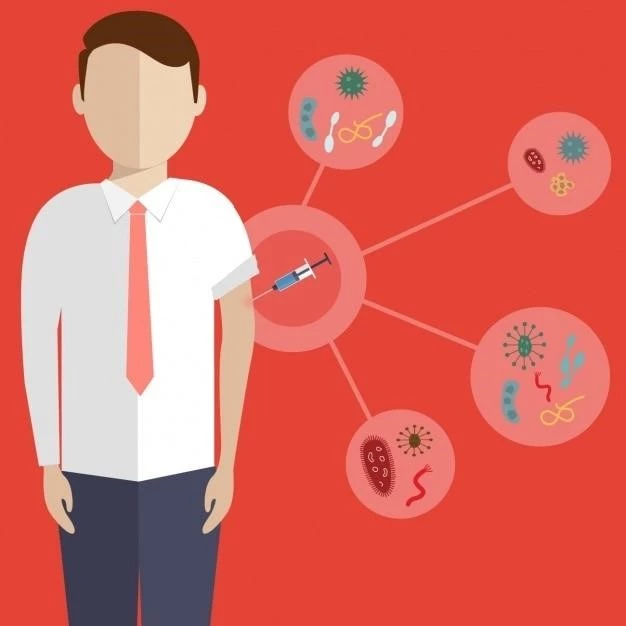Introduction to Shigellosis
Shigellosis, or Shigella infection caused by Shigella bacteria, is a disease that affects your digestive system. It produces stomach pain, diarrhea, and fever in infected individuals. Shigella is highly contagious, and various types of these bacteria can cause the infection.
Definition and Overview
Shigellosis, caused by the Shigella bacteria, is an intestinal infection resulting in symptoms like stomach pain, diarrhea, and fever. It is highly contagious and primarily transmitted through the fecal-oral route via contaminated food, water, or direct person-to-person contact. The infection can affect individuals of all ages, with the most vulnerable groups being young children, the elderly, and immunocompromised individuals. Prompt diagnosis through clinical evaluation and stool culture is crucial for appropriate treatment, including supportive care and targeted antibiotic therapy for severe cases.

Causes and Transmission
Shigellosis is primarily caused by the Shigella bacteria and commonly spreads through contaminated food, water, or direct person-to-person contact. The transmission occurs via the fecal-oral route, emphasizing the importance of hygiene in preventing the disease.
Bacterial Source
Shigellosis is primarily caused by the Shigella bacteria group, including various strains that can infect the intestines and lead to symptoms like diarrhea, stomach pain, and fever. These bacteria are typically transmitted through contaminated food, water, or direct person-to-person contact, emphasizing the importance of proper hygiene to prevent the spread of the infection.
Contamination Routes
Shigella bacteria primarily spread through contaminated food, water, or direct person-to-person contact. The transmission occurs through the ingestion of infected materials, emphasizing the significance of hygiene and sanitation measures in preventing the spread of Shigellosis.
Symptoms and Diagnosis
Shigellosis, caused by Shigella bacteria, manifests in symptoms like stomach pain, diarrhea, and fever. Diagnosing the infection typically involves clinical evaluation and stool culture to confirm the presence of the bacteria.
Common Signs
Shigellosis typically presents with common signs such as stomach pain, diarrhea, and fever. The infection caused by Shigella bacteria can result in gastrointestinal symptoms that vary in severity, with some cases also experiencing bloody stools. Prompt recognition of these signs is vital for early diagnosis and proper management of the condition.
Diagnostic Procedures
The diagnosis of shigellosis commonly involves clinical evaluation along with stool culture to confirm the presence of Shigella bacteria. This diagnostic approach helps healthcare professionals identify the specific cause of the infection and initiate appropriate treatment strategies.
Risk Factors
Shigellosis can affect individuals of all ages but poses a higher risk to young children, the elderly, and immunocompromised individuals. Factors such as poor sanitation, contaminated food, and direct person-to-person contact increase vulnerability to the infection.
Vulnerable Groups
Shigellosis disproportionately affects vulnerable groups such as young children, the elderly, and individuals with weakened immune systems. Factors contributing to their increased susceptibility include poor sanitation conditions, contaminated food sources, and close contact with infected individuals, highlighting the importance of targeted prevention strategies for these populations.
Environmental Considerations
Environmental factors play a crucial role in the transmission of Shigella bacteria that cause shigellosis. Contaminated food, poor sanitation practices, and direct contact with infected individuals contribute significantly to the spread of the infection. Understanding and addressing these environmental considerations are essential in preventing and controlling shigellosis outbreaks.
Treatment and Management
Shigellosis, caused by Shigella bacteria, is treated with antibiotics for severe cases and supportive care, which includes rehydration and symptom management. Prompt diagnosis and appropriate treatment are essential for effectively managing the infection.
Antibiotics Usage
Antibiotics play a crucial role in treating severe cases of shigellosis caused by Shigella bacteria. While antibiotics can help shorten the illness duration, it is important to consider potential drug resistance. Healthcare providers may reserve antibiotic treatment for moderate to severe infections to ensure effective management and prevent the spread of resistant strains.
Supportive Care
In addition to antibiotic treatment for severe cases, supportive care plays a vital role in managing shigellosis. Supportive care includes rehydration measures, relieving symptoms such as fever and stomach pain, and ensuring the patient’s overall comfort during the illness. Adequate supportive care is essential to aid recovery and prevent complications associated with the infection.
Prevention Strategies
Preventing shigellosis involves implementing effective hygiene practices and emphasizing the importance of vaccination to reduce the risk of infection. Proper handwashing, safe food handling, and avoiding contaminated water sources are essential preventive measures. Vaccination programs can help protect vulnerable populations and contribute to the overall prevention of shigellosis.
Hygiene Practices
Effective hygiene practices play a pivotal role in preventing shigellosis. Proper handwashing, especially after using the bathroom and before preparing or consuming food, can significantly reduce the risk of infection; Additionally, maintaining clean living environments and ensuring safe food handling practices are essential measures to prevent the transmission of Shigella bacteria.
Vaccination Importance
Vaccination plays a critical role in preventing shigellosis by providing immunity against the Shigella bacteria. Vaccination programs target vulnerable populations, such as young children and individuals with weakened immune systems, to reduce the risk of infection and curb the spread of the disease. The importance of vaccination in preventing shigellosis outbreaks cannot be overstated, highlighting its significant role in public health efforts.
Complications of Shigellosis
Complications of shigellosis can include reactive arthritis, which affects joints, and hemolytic-uremic syndrome, a condition that can lead to kidney failure. Monitoring and appropriate management of these complications are essential in the treatment of shigellosis.
Reactive Arthritis
Shigellosis can lead to reactive arthritis as a complication, characterized by joint inflammation that typically occurs after the gastrointestinal infection. Individuals may experience joint pain, swelling, and stiffness as a result of reactive arthritis developing following a shigellosis infection. Proper monitoring and medical intervention are necessary to manage this complication effectively.
Hemolytic-Uremic Syndrome
Shigellosis can lead to the development of hemolytic-uremic syndrome, a condition characterized by the destruction of red blood cells and potential kidney failure. This complication, although rare, can have serious consequences and requires timely medical intervention to manage the associated complications effectively.
Global Impact of Shigellosis
Shigellosis poses significant public health challenges globally, particularly in developing countries, where factors like poor sanitation conditions and limited access to clean water contribute to the high incidence of the disease. Addressing these concerns through improved hygiene practices and targeted interventions is crucial to mitigate the impact of shigellosis on vulnerable populations.
Developing Countries Concerns
Developing countries face significant concerns related to shigellosis due to poor sanitation conditions, limited access to clean water, and overcrowded living environments. These factors contribute to the high incidence of shigellosis in these regions, highlighting the urgent need for improved public health infrastructure and hygiene measures to combat the disease effectively.
Addressing public health challenges related to shigellosis involves tackling issues such as the spread of infection through contaminated food and water sources, as well as person-to-person contact. Implementing effective surveillance strategies, promoting hygiene practices, and enhancing access to healthcare services are essential in managing and preventing shigellosis outbreaks.

Outbreaks and Case Studies
Shigellosis outbreaks and case studies provide valuable insights into the transmission dynamics and management strategies for this infectious disease. Understanding the factors contributing to outbreaks and analyzing real-world scenarios can inform public health interventions and improve response protocols.
Public Health Challenges
Managing the impact of shigellosis poses significant public health challenges, especially in developing countries where poor sanitation, limited access to clean water, and overcrowding contribute to the disease burden. Addressing these challenges requires robust public health initiatives, including improving sanitation infrastructure, promoting hygiene practices, and enhancing disease surveillance to prevent and control shigellosis outbreaks effectively.
Insights gleaned from the management of recent shigellosis outbreaks offer valuable lessons for public health authorities and healthcare providers. By analyzing the handling of these outbreaks, identifying areas of improvement, and implementing effective strategies, future responses to shigellosis cases can be better coordinated and more efficiently managed.
Research and Development
Research on shigellosis focuses on vaccine development to prevent infections and reduce the disease burden. Additionally, studies on antibiotic resistance in Shigella species aim to address treatment challenges and improve patient outcomes. Advancements in research and development play a crucial role in combating shigellosis effectively.
Management Lessons
Learning from recent shigellosis outbreaks and case studies provides valuable insights into the effective management of the disease. Analyzing the response strategies, identifying areas for improvement, and implementing best practices can enhance preparedness and response efforts for future shigellosis incidents.
Antibiotic Resistance Studies
Antibiotic resistance studies focusing on Shigella species aim to address the challenges of drug resistance in shigellosis treatment. Understanding the mechanisms of resistance and developing strategies to combat resistant strains are crucial for effective management of shigellosis cases and improving patient outcomes.
Transmission Routes
Shigellosis, caused by the Shigella bacteria group, spreads through multiple transmission routes, including person-to-person contact and the ingestion of contaminated food and water. Understanding these transmission routes is crucial in preventing and controlling the spread of shigellosis infections.
Person-to-Person Spread
Person-to-person spread of shigellosis occurs through the ingestion of Shigella bacteria from contaminated sources linked to fecal-oral transmission. Direct contact with infected individuals or exposure to contaminated food and water can facilitate the transmission of the disease, highlighting the importance of practicing good hygiene to prevent the spread of Shigella infections.
Food and Water Contamination
Food and water contamination are common routes for the transmission of shigellosis. Shigella bacteria can contaminate food and water sources, leading to infection upon ingestion. Ensuring proper food hygiene, water sanitation, and avoiding consumption of contaminated products are essential measures to prevent the spread of shigellosis through food and waterborne routes.
Public Awareness and Education
Public awareness and education programs play a crucial role in preventing shigellosis outbreaks by promoting proper hygiene practices to reduce transmission. By educating communities about the risks associated with contaminated food and water sources, as well as the importance of hygiene, individuals can take proactive steps to protect themselves and others from shigellosis.
Community Health Programs
Community health programs focusing on shigellosis aim to educate individuals about the importance of hygiene practices, safe food handling, and disease prevention strategies. By engaging with local communities, these programs create awareness about the risks associated with shigellosis and empower individuals to take proactive measures to safeguard their health.
School Initiatives
School initiatives for shigellosis education raise awareness among students and staff about the importance of hand hygiene, proper sanitation, and food safety to prevent the spread of infections. By implementing educational programs in schools, individuals can learn how to reduce the risk of shigellosis transmission and promote a healthier environment within educational settings.
Legal and Regulatory Aspects
When managing shigellosis, specific legal and regulatory aspects come into play. Reporting requirements and government interventions are key components to monitor and control the spread of shigellosis effectively. Timely reporting and appropriate government actions are crucial in addressing outbreaks and ensuring public health safety.
Reporting Requirements
Adhering to reporting requirements is essential in tracking and monitoring shigellosis cases to implement timely interventions. Healthcare providers, laboratories, and public health authorities must promptly report confirmed cases to facilitate disease surveillance, investigate potential outbreaks, and implement appropriate control measures to prevent further transmission of shigella infections.
Government Intervention
Government intervention plays a crucial role in responding to shigellosis outbreaks by implementing public health measures, conducting investigations, and coordinating control efforts. Government agencies may enforce regulations, allocate resources, and collaborate with healthcare providers to contain the spread of shigellosis and protect community health.
Conclusion on Shigellosis
Shigellosis, caused by the Shigella bacteria group, is a significant public health concern characterized by intestinal infections that result in symptoms like diarrhea, abdominal pain, and fever. Preventive measures, including hygiene practices, vaccination, and targeted interventions, are vital in controlling the transmission and impact of shigellosis. Continued research, surveillance, and adherence to legal regulations are essential in effectively managing and preventing shigellosis outbreaks worldwide.
